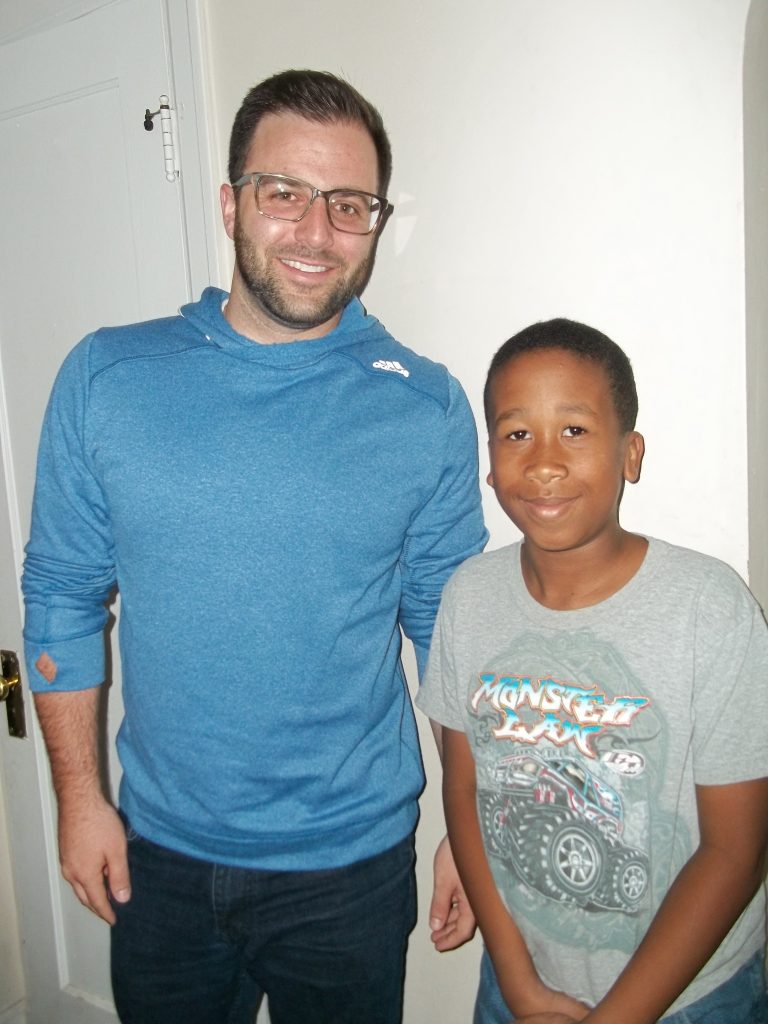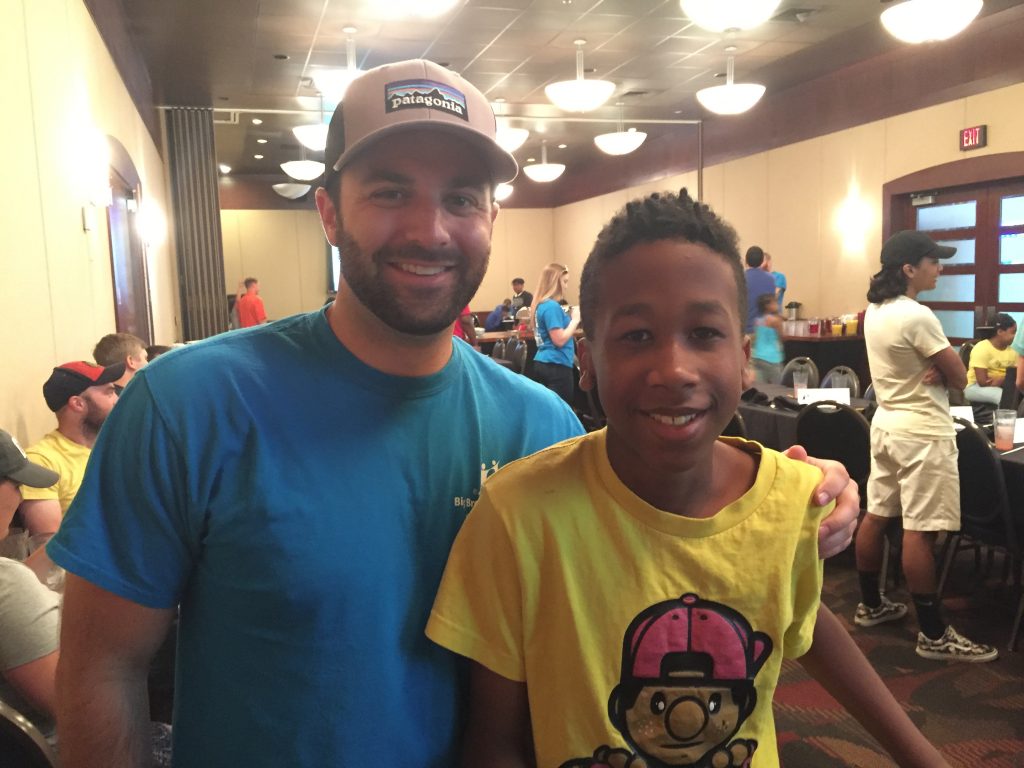Big Brothers Big Sisters of Central Indiana Changes Lives Through Mentoring
Writer / Christy Heitger-Ewing
Photography provided by BBBSCI
 Neil Skirvin’s father used to work for Big Brothers Big Sisters of Central Indiana (BBBSCI). The elder Skirvin often urged his son to become a mentor at the organization, but Skirvin hesitated, unsure if he would make a good big brother. Then last year he suddenly had a change of heart.
Neil Skirvin’s father used to work for Big Brothers Big Sisters of Central Indiana (BBBSCI). The elder Skirvin often urged his son to become a mentor at the organization, but Skirvin hesitated, unsure if he would make a good big brother. Then last year he suddenly had a change of heart.
Matched since May 2016 with Jeremiah, Skirvin jumped into the relationship full force.
“Jeremiah has no father figure in his life, and every time I pick him up, he’s excited to hang out with me,” Skirvin says. “Seeing how excited he gets about the smallest things is amazing.”
The mission of BBBSCI is to provide children facing adversity with strong and enduring, professionally supported one-on-one relationships that forever change their lives for the better. By matching adult volunteers (“Bigs”) with youth in Central Indiana (“Littles”), children in the community are positively affected.
Volunteers must be 19 years or older (there is no upper age cap), be willing to make a minimum of a 12-month commitment and make plans to get together with their Little at least twice a month for four hours. During these meetings, mentors are encouraged to seek low to no-cost activities as the relationships are not about spending money but rather quality time.
Skirvin has witnessed, firsthand, that bonding is over brotherhood, not bank accounts.
“It doesn’t matter what we do, Jeremiah is always excited for the day’s activity,” Skirvin says. “[He loves doing] simple things like ice skating or riding a bike down the Monon Trail. I literally have to force him to turn around to head home because he’s having too much fun.”
Amy Pomeranz-Essley, Chief Program Officer of BBBSCI, emphasizes that elaborate plans are unnecessary. In fact, it’s often the everyday moments that bond people.
“Running errands on a weekend or washing the car together,” Pomeranz-Essley says. “Shooting baskets or going for a walk — these are all great bonding activities.”
The BBBSCI does, however, provide Bigs with a mobile app that lists hundreds of ideas for activities. The organization also plans activities for Bigs and Littles to participate in such as cooking classes, pottery classes, sporting and cultural events. In addition, mentors are encouraged to engage in community service volunteer projects with their Little.
“We focus on academic opportunities for our older Littles so, for instance, we’ll do college visits or etiquette classes,” Pomeranz-Essley says.
Although children must be between the ages of 8 and 14 to be eligible to enroll in the program, Littles can stay matched until they are 18 or graduate from high school. Sometimes these relationships extend beyond 12th grade.
Pomeranz-Essley says that they recently held a fundraising event at a bowling alley and one of the mentors came with his Little, who was home from college.
“The Little shared how his Big was critical in helping him make good decisions and keep him on track while home from college,” Pomeranz-Essley says.
Recognizing that not everyone feels comfortable mentoring a child alone, the organization provides tandem mentoring opportunities in their Big Couples and Big Friends options. Big Couples is for two people who are in a romantic relationship to counsel one child together. Similarly, Big Friends is for two individuals who have known each other for at least two years (could be friends, coworkers, a mother/daughter duo, etc.) who wish to share in the mentoring of a child.
These pairings work great for folks who want to support these children but recognize that they won’t always be able to be there for that twice-a-month commitment. It’s also a nice option for anyone who has limited experience working with kids but nevertheless has a desire to help a child.
“We want to be sure our program fits for everyone so these options help do that,” says Pomeranz-Essley, noting that they have married couples who mentor together as well as parents with kids of their own.
Matching Bigs with Littles is the most intense part of the process. Potential mentors must engage in an overview screening, criminal history, background and reference check. Both Bigs and Littles also participate in in-person interviews to discuss their interests, experiences and expectations. Then based on collected information, including distance (pairs are never to be further than 20 minutes from each other), the organization creates a match.
Being part of a national organization, the BBBSCI conducts a lot of research and outcome-based surveys to measure the program’s success. What they’ve found is that being matched with a mentor makes children more likely to achieve academic success. They’re also less likely to engage in risky behaviors because their social and emotional competencies are improved.
“The biggest thing we want people to know is that mentoring is fun, flexible and fulfilling,” Pomeranz-Essley says. And that goes both ways. Often, mentors initially volunteer because they have a desire to help a child. Then they get more out of the mentoring experience than they ever dreamed possible.
The BBBSCI in Marion County is currently in need of male volunteers. To learn more, contact Bridget Feeney at bfeeney@bbbsci.org.






Comments 1